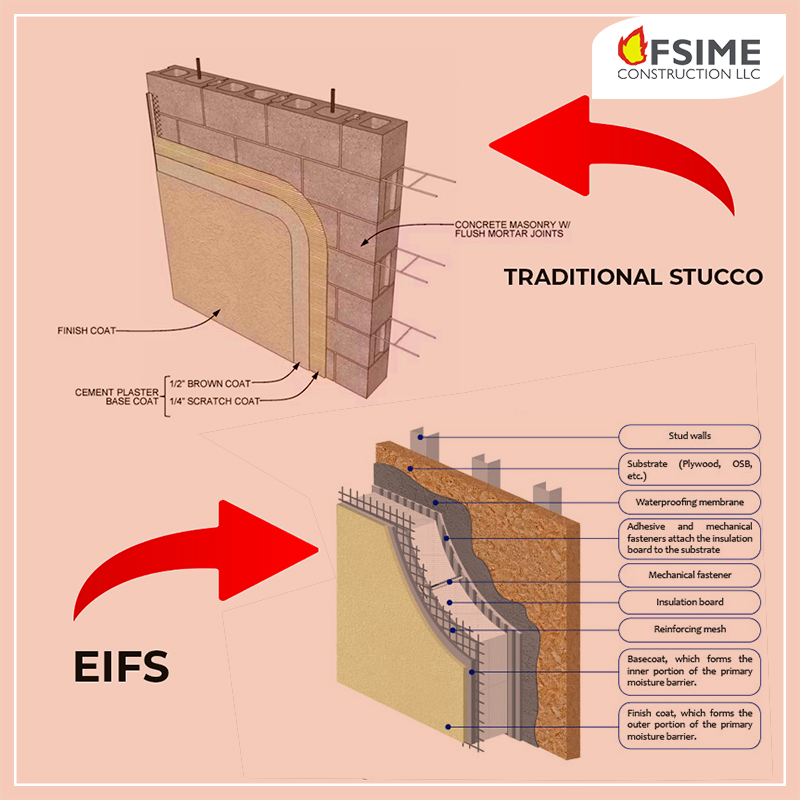
EIFS is a multi-layered exterior wall system that provides both insulation and an attractive finish. It consists of three main components: insulation board, base coat, and a textured finish coat. The insulation board is typically made of expanded polystyrene (EPS) foam, which is lightweight, energy-efficient, and can enhance the thermal performance of a building. The base coat is applied over the insulation board, providing strength and durability. Finally, the textured finish coat adds aesthetics to the system.
Advantages of EIFS:
Energy Efficiency: One of the main advantages of EIFS is its excellent thermal insulation properties. The insulation board acts as a barrier, reducing heat transfer and minimizing energy consumption for both heating and cooling. This energy efficiency can lead to lower utility bills and a reduced environmental footprint.
Design Versatility: EIFS offers a wide range of design possibilities. The textured finish coat can be customized to mimic various materials, such as stucco, brick, or stone. This flexibility allows architects and homeowners to achieve the desired aesthetic without compromising on performance.
Crack Resistance: EIFS is highly resistant to cracks, making it a durable choice. The system can accommodate slight movements in the building structure without compromising its integrity. Additionally, the flexible base coat provides added protection against impacts.
Traditional stucco has a long history and has been used for centuries as an exterior wall finish. It is typically composed of cement, sand, and lime. The stucco mixture is applied in multiple coats, creating a hard, durable, and visually appealing finish.
Key Differences
While both EIFS and traditional stucco have their advantages, it's important to consider their differences:
Insulation: EIFS provides superior insulation due to its insulation board component. Traditional stucco does not offer the same level of insulation properties.
Crack Resistance: EIFS is designed to be more flexible and resistant to cracking, whereas traditional stucco can be prone to cracking over time.
Maintenance: Traditional stucco may require periodic maintenance, including sealing and repainting, while EIFS generally requires less maintenance.
Choosing between EIFS and traditional stucco ultimately depends on your project requirements and priorities. While traditional stucco offers a classic charm and durability, EIFS provides energy efficiency, design versatility, and crack resistance. FSIME Construction, located in the UAE, is well-versed in EIFS application and can assist you in making an informed decision based on your specific needs. Whichever system you choose, you can trust FSIME Construction to deliver exceptional results and a high-quality finish for your construction project.
 Call Back
Call Back